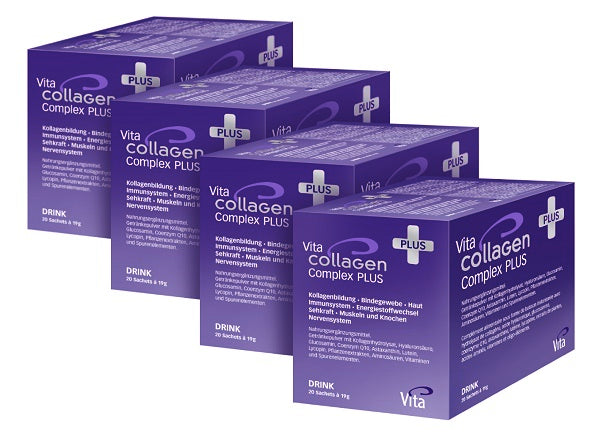Nutriments essentiels pour votre santé

Choline et zinc
La choline contribue à une fonction hépatique normale et à un métabolisme normal des lipides. Et le zinc contribue à un métabolisme normal des acides gras et à un métabolisme normal acido-basique.
Métabolisme énergétique
La vitamine B6 et B12 contribuent à un métabolisme énergétique normal. Le folate, B12 et C contribuent à réduire la fatigue et l'épuisement.
Vitamines B
B6 et B12 contribuent à une fonction normale du système nerveux et à des performances mentales normales. B6, B12 et folate contribuent à un métabolisme normal de l'homocystéine.
Système immunitaire
Le folate, B6, B12, D et le sélénium contribuent à une fonction normale du système immunitaire.
Choline
La choline contribue au maintien d'une fonction hépatique normale et à un métabolisme normal des lipides.
Vitamines B
B6 et B12 contribuent à une fonction normale du système nerveux et à des performances mentales normales. B6, B12 et folate contribuent à un métabolisme normal de l'homocystéine.
Métabolisme énergétique
La vitamine B6 et B12 contribuent à un métabolisme énergétique normal. Le folate, B12 et C contribuent à réduire la fatigue et l'épuisement.
Système immunitaire
Le folate, B6, B12, D et le sélénium contribuent à une fonction normale du système immunitaire.
Bon pour le système immunitaire
Contribuent à une fonction normale du système immunitaire : fer, acide folique, cuivre, sélénium, vitamine A, B6, B12, C, D, zinc.
Nutriments protecteurs contre le stress
Contribuent à protéger les cellules contre le stress oxydatif : cuivre, manganèse, vitamine B2, C, E, sélénium, zinc.
Moins fatigué
Contribuent à réduire la fatigue et l'épuisement : fer, acide folique, magnésium, niacine, acide pantothénique, vitamine B2, B6, B12, C.
Nutriments essentiels pour le système immunitaire
Contribuent à une fonction normale du système immunitaire : vitamine C, vitamine D et zinc.
Vitamine C
La vitamine C contribue à un métabolisme énergétique normal. Et la vitamine C contribue à réduire la fatigue et l'épuisement.
La meilleure combinaison pour les articulations
On utilise du glucosamine et du chondroïtine de haute qualité sous forme de sulfate de glucosamine et de sulfate de chondroïtine.
Vitamine C
La vitamine C contribue à une formation normale de collagène pour une fonction normale des os et une fonction normale du cartilage.
Hydrolysat de collagène
C'est une protéine pure contenant des acides aminés tels que la L-proline, l'hydroxyproline et la glycine, qui apportent une contribution importante à la construction et à la nutrition des structures articulaires.
Vitamine K
La vitamine K contribue au maintien d'os normaux.
Manganèse
Le manganèse contribue à une formation normale du tissu conjonctif et au maintien d'os normaux.
Cuivre
Le cuivre contribue au maintien d'un tissu conjonctif normal.
Vitamine C
La vitamine C contribue à une formation normale de collagène, à une fonction normale du cartilage, de la peau et du système immunitaire normal. De plus, la vitamine C contribue à un métabolisme énergétique normal et aide à protéger les cellules contre le stress oxydatif. La vitamine C contribue à une fonction normale du système nerveux et à une fonction psychique normale.
Complexe de vitamines B
Le complexe de vitamines B (B2, B6 et B12) contribue à une fonction normale du système nerveux. De plus, les vitamines B6 et B12 contribuent à une fonction psychique normale.
Cuivre
Le cuivre contribue au maintien d'un tissu conjonctif normal et d'un métabolisme énergétique normal. En outre, le cuivre contribue à une fonction normale du système nerveux et immunitaire.
Vitamine C
La vitamine C contribue à une formation normale de collagène, à une fonction normale du cartilage, de la peau et du système immunitaire. De plus, la vitamine C contribue à un métabolisme énergétique normal et aide à protéger les cellules contre le stress oxydatif.
Manganèse
Le manganèse contribue à une formation normale du tissu conjonctif et aide à protéger les cellules contre le stress oxydatif.
Biotine
La vitamine H, mieux connue sous le nom de biotine, contribue au maintien de cheveux et de peau normaux.
Biotine
La biotine contribue au maintien de cheveux normaux.
Pigmentation des cheveux
Le cuivre contribue à une pigmentation normale des cheveux.
Cheveux et ongles
Le zinc et le sélénium contribuent au maintien de cheveux et d'ongles normaux.
Division cellulaire
La vitamine B12, l'acide folique, le fer et le zinc jouent un rôle dans la division cellulaire.
Vitamine D
La vitamine D contribue au maintien d'os et de dents normaux. Et la vitamine D contribue à une fonction normale du système immunitaire et joue un rôle dans la division cellulaire.
Zinc
Le zinc contribue au maintien d'os, de cheveux, de peau et d'ongles normaux. Et le zinc contribue à une fonction normale du système immunitaire. Le zinc aide à protéger les cellules contre le stress oxydatif et joue un rôle dans la division cellulaire.
Sélénium
Le sélénium contribue au maintien de cheveux et d’ongles normaux. Et le sélénium contribue au fonctionnement normal du système immunitaire et aide à protéger les cellules contre le stress oxydatif.
Vitamines B
La vitamine B6 et B12 contribuent à un métabolisme énergétique normal et à la réduction de la fatigue.
Zinc
Le zinc contribue au maintien d’un taux normal de testostérone dans le sang.
Nutriments essentiels pour hommes
La vitamine B6 contribue à la régulation de l’activité hormonale. Et le sélénium contribue à une spermatogenèse normale.
L-Arginine
Cet acide aminé peut être produit par le corps lui-même, mais cette quantité n’est pas toujours suffisante dans certaines situations. En synergie avec l’extrait d’écorce de pin, la microcirculation et la circulation sanguine des systèmes organiques peuvent être stimulées.
Vitamines B
La vitamine B6 et B12 contribuent à un métabolisme énergétique normal et à la réduction de la fatigue.
Vitamines protectrices contre le stress
La vitamine C, le manganèse, le sélénium et le zinc contribuent à protéger les cellules contre le stress oxydatif.
Vitamines pour les nerfs
La vitamine C, B6 et B12 contribuent au fonctionnement normal du système nerveux et à la fonction psychologique normale.
Nutriments essentiels pour le système immunitaire
La vitamine C, D, B12, le sélénium, le zinc et le cuivre contribuent au fonctionnement normal du système immunitaire.
Vitamines contre la fatigue
La vitamine C et la vitamine B12 contribuent à réduire la fatigue.
Biotine
La biotine contribue au maintien de muqueuses normales.
Lactoferrine
C'est une protéine multifonctionnelle endogène qui joue un rôle important dans le système immunitaire inné.
Vitamine B2
La vitamine B2 contribue au maintien d'une bonne vision.
Lutéine
Ce caroténoïde se trouve principalement dans les légumes verts comme les épinards, le chou frisé, le brocoli, le poivron et les pois.
Zéaxanthine
Il fait partie des caroténoïdes orange-jaune qui donnent aux différentes plantes leur couleur jaune, orange ou rougeâtre.
Vitamine C
La vitamine C contribue à une formation normale de collagène pour une fonction normale des os et une fonction normale du cartilage.
Manganèse
Le manganèse contribue à une formation normale du tissu conjonctif et au maintien d'os normaux.
Cuivre
Le cuivre contribue au maintien d'un tissu conjonctif normal.
Nerfs et psyché
Les vitamines B1, B2, B6, B12, folate, niacine, acide pantothénique, biotine et le magnésium contribuent au bon fonctionnement du système nerveux ainsi qu'à une fonction psychique normale et à la performance mentale.
Zinc
Le zinc contribue à une fonction cognitive normale et à la protection des cellules contre le stress oxydatif.
Réduction de la fatigue
Les vitamines B2, B12, niacine, folate, acide pantothénique et le magnésium contribuent à réduire la fatigue et l'épuisement.
Fonction cardiaque
L'acide eicosapentaénoïque (EPA) et l'acide docosahexaénoïque (DHA) contribuent à une fonction cardiaque normale.
Vitamines E et D
La vitamine E contribue à protéger les cellules contre le stress oxydatif. La vitamine D contribue au bon fonctionnement du système immunitaire.
Fonction cérébrale et vision
L'acide docosahexaénoïque (DHA) contribue au maintien d'une fonction cérébrale normale et d'une bonne vision.
Coenzyme Q10
Le Q-10 est une substance endogène et est partiellement absorbé par l'alimentation, mais aussi produit par le corps lui-même. Dans chaque cellule humaine, l'énergie provenant de la nourriture est convertie en énergie corporelle (ATP). Les organes ayant les besoins énergétiques les plus élevés (comme le cœur, les poumons, le foie) présentent donc la concentration la plus élevée de Q-10.
Fonction cardiaque
L'acide eicosapentaénoïque (EPA) et l'acide docosahexaénoïque (DHA) contribuent à une fonction cardiaque normale.
Vision
L'acide docosahexaénoïque (DHA) contribue au maintien d'une vision normale.
Fonction cérébrale
L'acide docosahexaénoïque (DHA) contribue au maintien d'une fonction cérébrale normale.
Vitamine E
La vitamine E contribue à protéger les cellules contre le stress oxydatif.
Hydrolysat de collagène
C'est une protéine pure contenant des acides aminés tels que la L-proline, l'hydroxyproline et la glycine, qui apportent une contribution importante à la construction et à la nutrition des structures articulaires.
Manganèse
Le manganèse contribue à une formation normale du tissu conjonctif et au maintien d'os normaux.
Vitamine C
La vitamine C contribue à une formation normale de collagène pour une fonction normale des os et une fonction normale du cartilage.
Protéines
Les protéines contribuent au maintien et à l'augmentation de la masse musculaire.
Magnésium
Le magnésium contribue à une fonction musculaire normale et à une synthèse normale des protéines.
L-Carnitine
En raison de son large spectre, les domaines d'application de la L-Carnitine sont variés. Ce ne sont pas seulement les sportifs qui bénéficient de ses nombreuses propriétés.
Fonction musculaire
Contribuent à une fonction musculaire normale : magnésium, calcium, potassium et vitamine D.
Nerfs et psyché
Le calcium contribue à une transmission normale des signaux entre les cellules nerveuses. Contribuent à une fonction psychique normale : magnésium, vitamine B6, B12, C et acide folique. Contribuent à une fonction normale du système nerveux : magnésium, potassium, vitamine B2, B6, B12 et C.
Pression artérielle
Le potassium contribue au maintien d'une pression artérielle normale.
Métabolisme énergétique
Contribuent à un métabolisme énergétique normal : magnésium, calcium, vitamine B2, B6, B12 et C.
Fonction musculaire
Contribuent à une fonction musculaire normale : magnésium et vitamine D.
Psyché
Contribuent à une fonction psychique normale : magnésium, vitamine B6, B12 et acide folique.
Système nerveux
Contribuent à une fonction normale du système nerveux : magnésium, vitamine B6 et B12.
Métabolisme énergétique
Contribuent à un métabolisme énergétique normal : magnésium, vitamine B6 et B12.


